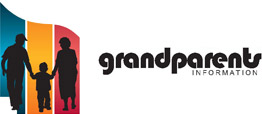Originally published as 'Ordinary People: Rudi Bianchi' in QWeekend on July 15, 2023 and reproduced here with permission. Interview by Tonya Turner; picture by David Kelly.
I was born in Innisfail and grew up in a little town called Mena Creek in the bush. My childhood was brilliant. We had no electricity and the joke was Mena Creek was so small the “welcome” and “goodbye” sign was on the same post.
Crime was non-existent, there was no locksmith there – growing up as a bushie was good.
My parents Vincent and Paula were sugar farmers. They had one ethic and that was called “work”. I sometimes wonder when they had time to have us kids. My older sister Oriente and I went to school at a one room, one teacher state school. Most of the kids rode to school on horseback.
When we got a bit older my dad said “it’s cheaper to send them to boarding school than it is to feed them,” so I went to boarding school in Charters Towers and then joined the navy. My brother Stephen, now an anaesthetist, was born soon after.
I ended up in the electrical branch and then left in 1962 to join the Merchant Navy. I spent 15 years out at sea. You virtually lived in a shoebox. On some of those ships, especially the smaller destroyers and frigates, there was no room. You slept in a hammock, they rocked and rolled, and it was very, very rough. Because you’re so jammed in together, comradery came to the fore. Privacy was nonexistent, you knew everything about the people you sailed with – and it was beautiful. You get a licence to say things to your old friends, like “the last time I saw you was on the Voyager, and by the way, you’re still ugly.” There were good times but there were also bad times. I participated in the Malayan Campaign and the Borneo Confrontation. It was at times a bit spooky but they trained you well. We were based in Singapore and Hong Kong and we travelled a lot. I believe travel is the greatest educator there is. The big think I learnt from it is how beautiful and wonderful this country is.
My biggest regret is not being able to be at home when my dad died. I idolised him. For someone who had no education, he died a respected and reasonably wealthy man through hard work. After he died I came home to help mum. I was going to go back to sea because I loved it so much, but I bumped into a good looking sheila and she mucked all my plans up.
Theresa and I were both mad squash players and she owned a sports car. We got married and had two girls, Michelle and Dianne. We had a wonderful 40 years together before Theresa passed away last year. My daughters are my rock and they live close by to my new home at Azure Blue Carina retirement village. I moved here in January from our beautiful big family home in Coorparoo. I had an electrical business and I inherited my dad’s problem of being a workaholic. But it allowed us to put in a pool and a tennis court and we were a pet mad family. We were never without a dog and a cat. I think as a kid growing up, if you don’t have a pet you miss out. It became very difficult for me to maintain the property on my own though, so I sold it and came here.
I like to stay involved in things. I’m the president of the Far East Strategic Reserve Navy Association and vice president of the Queensland branch of the Naval Association of Australia.
Many years ago we noticed there was no statue of a sailor in Queensland, so I led a committee that fought like mad to get one up at South Bank near The Ship Inn overlooking the Queensland Maritime Museum. It took four years but we finally wore bureaucracy down. Now every month we have an event there where I’m the master of ceremonies. We used a theory that old farmers used to use called the cattle dog theory, which is grab hold of something and never let it go.
Every Monday night I go for a walk with the Hash House Harriers. There’s only one rule – no one’s allowed to be serious. I’m in my 42nd year of doing it. I was also a member of the Toowong Rowing Club for about 40 years. It was only last year that I stopped, but I still see all my rowing mates every Thursday morning for breakfast.
Last Anzac Day I donated a map of the battle plan for Tobruk to the village. A friend of mine asked me to help clean his dad’s house out, and his dad was one of the Rats of Tobruk. It’s got hundreds of signatures all around the edges by Australian, German and Italian servicemen. I had it reproduced and wrote across the bottom of it “Mortal enemies then, eternal friends now, such is the folly of war.” It’s up on the wall here in the bistro.
I march every Anzac Day and a few of us get together on the river and drop petals in the water.
I’m accepting the fact that health is becoming an issue in our associations. A lot of my shipmates unfortunately are passing. Even though they go, your memories stay on.














